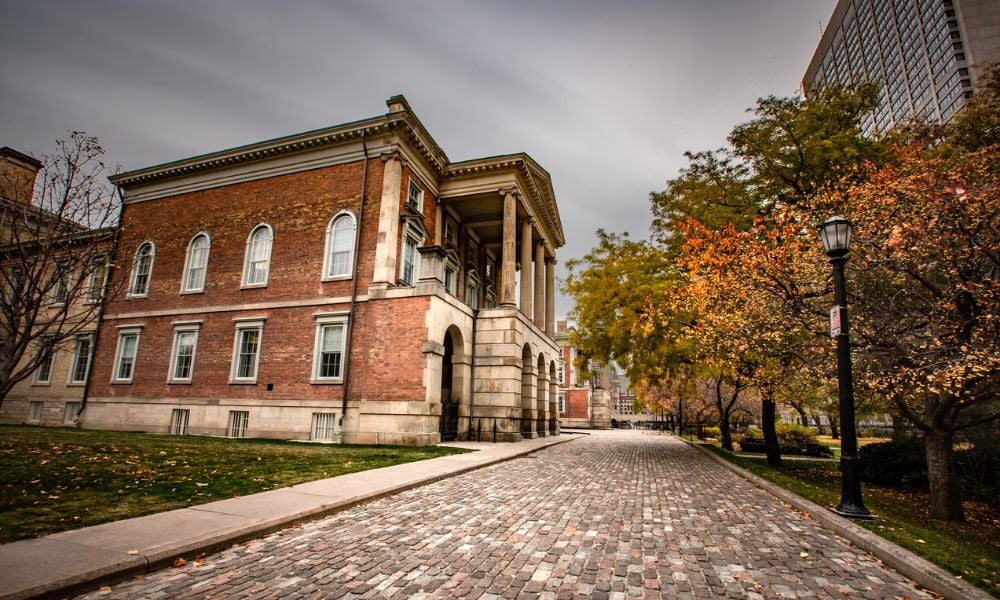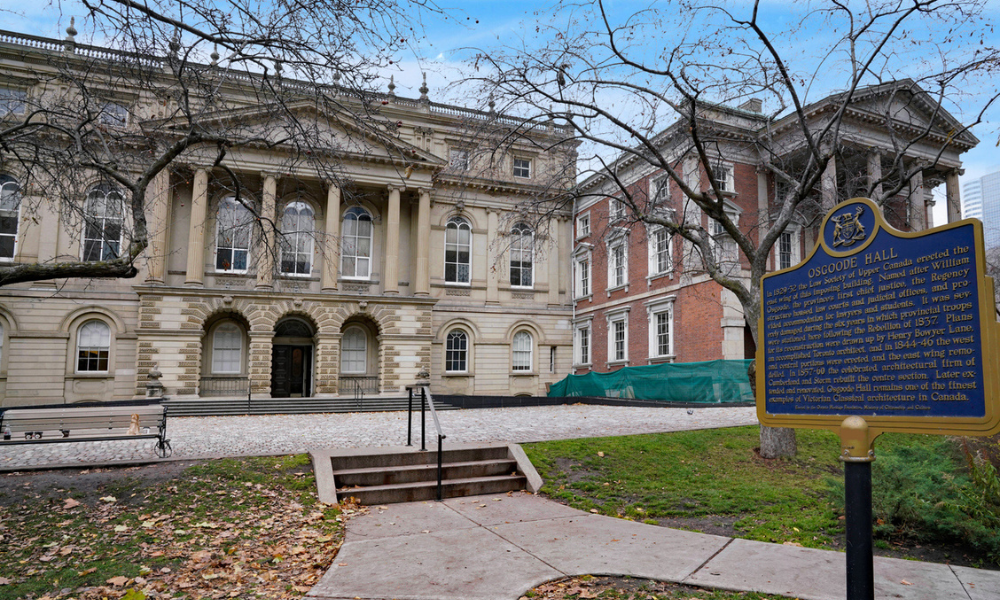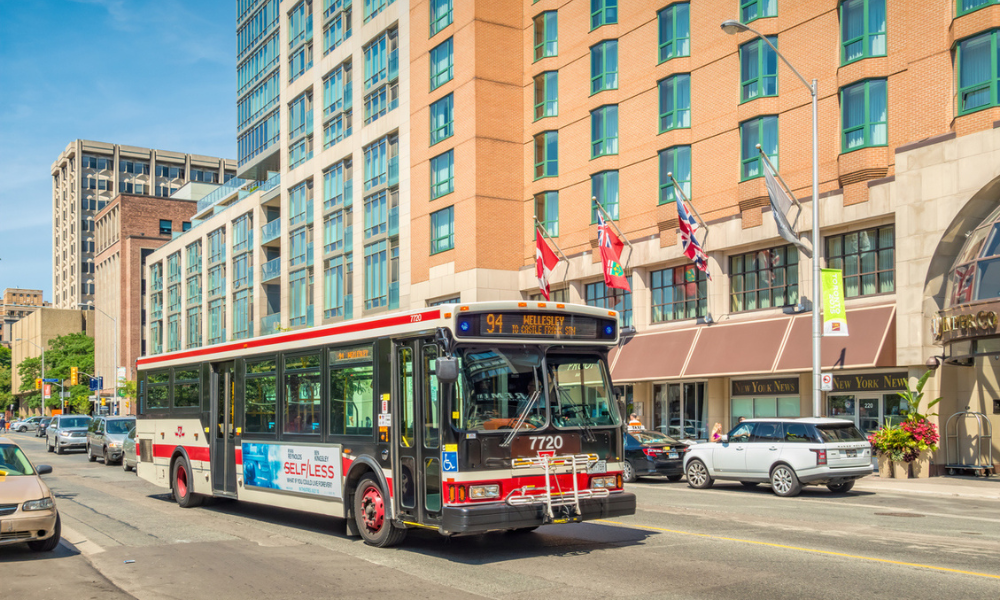'That train has left the station,' says lawyer for transport group that wants transit pavilion on site

The Law Society of Ontario lost its fight to stop Metrolinx from cutting down trees at Osgoode Hall, with an Ontario Superior Court of Justice judge ruling in favour of the province’s transportation agency's preferred location for building a transit pavilion on the southeast corner of the historic site.
"I find that I accept the respondent Metrolinx's position of the Ontario Heritage Act's unavailability to assist the law society's case," said Justice Charles Hackland in dismissing the legal regulator's request for a further injunction after another judge granted it an interim injunction last Sunday, lasting until midnight Friday, Feb. 10.
"I also feel that the balance of convenience is against enjoining the continuation of work on the Ontario Line," he added, referring to the new subway line that the province wants to construct. "Therefore, the motion for interlocutory injunction is dismissed."
Justice Hackland also said he gave "serious consideration" to extending the temporary injunction for several more days. However, he said, on further consideration of the submissions made and "the fact that I know what I am going to do," the interests of justice are better served by giving his decision right away.
On Thursday, the society argued its case before Justice Hackland, who is based in Ottawa. On Friday, Metrolinx presented its rebuttal.
Metrolinx lawyer Sarit Batner said the LSO had an opportunity a long time ago to make its views known rather than leave it until just before construction is set to begin.
“This is about the law society not wanting a subway station on its land, but that train has left the station,” Batner said.
She added that Metrolinx legally expropriated the southwest corner of the Osgoode Hall grounds after it received provincial approval and is within its rights to cut the trees to build the subway entrance. The Osgoode Hall property has three owners – Metrolinx, the Ontario government, and the LSO.
The court also dealt with two other issues – the Grange Community Association asking for intervenor status and a separate injunction request from an Indigenous group called the Haudenosaunee Development Institute.
Justice Hackland denied intervenor status to the Grange Community Association, saying he wasn't clear exactly what the organization wanted from the court and that he wasn't in a position to take a position on which of several proposed sites for the transit pavilion was best. (The association was in favour of a different location, called Osgoode Plaza.)
The judge also denied the HDI request for an injunction. "I conclude the balance of convenience does not favour the granting of an injunction."
Batner told the court that Metrolinx has already lost time and can’t afford to lose more. “The time matters. . .. We have a project agreement, we have commitments, and the time for waiting is done. We’ve done nothing wrong.”
She added that the society’s chance to argue against cutting trees was back in 2021 and 2022, around the time the province granted the necessary permissions for the work to happen, including the decision to expropriate part of the land at Osgoode Hall.
The provincial ministers involved in giving the approvals considered all the issues now being argued in court, including the views, the trees and the historic iron fence, Batner said.
“It was those ministers that had the power to do what the law society wants, and those ministers that declined to do it.” Yet the law society did not ask for a judicial review of these decisions, so “for this reason alone,” Justice Hackland should deny the injunction request. She also argued the Ontario Heritage Act did not give the law society any legal tool to stop the plans of Metrolinx.
Batner also said that while there has been much discussion about the trees in question being 200 years old, the trees now standing were replanted by the LSO around the time of the Second World War.
As well, Metrolinx has committed to replanting trees at a ratio of three to each cut down.
“These trees are not old,” she said. “They were replaced by the Law Society. They will be replaced again,” she said.









